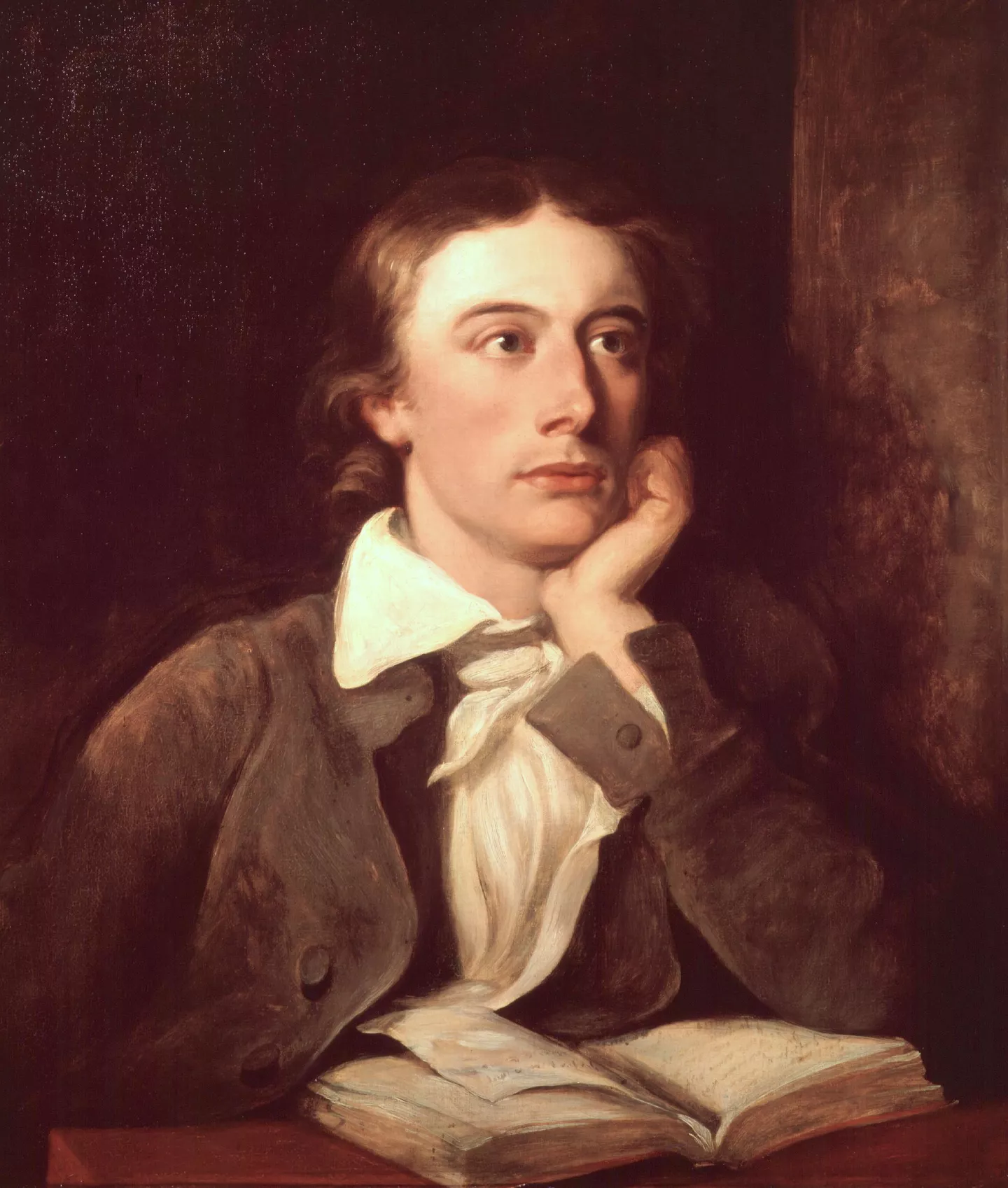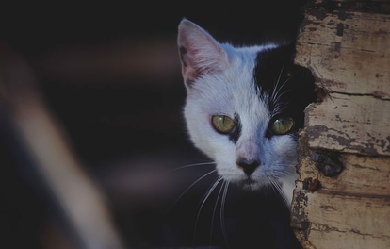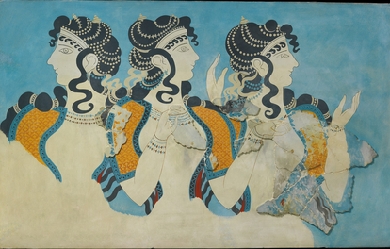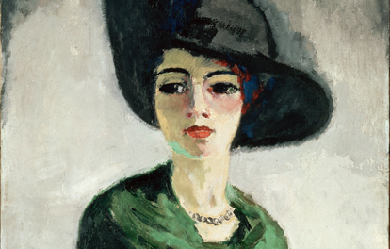
Poetry and Ambition
1. I see no reason to spend your life writing poems unless your goal is to write great poems.
An ambitious project—but sensible, I think. And it seems to me that contemporary American poetry is afflicted by modesty of ambition—a modesty, alas, genuine ... if sometimes accompanied by vast pretense. Of course the great majority of contemporary poems, in any era, will always be bad or mediocre. (Our time may well be characterized by more mediocrity and less badness.) But if failure is constant the types of failure vary, and the qualities and habits of our society specify the manners and the methods of our failure. I think that we fail in part because we lack serious ambition.
2. If I recommend ambition, I do not mean to suggest that it is easy or pleasurable. “I would sooner fail,” said Keats at twenty-two, “than not be among the greatest.” When he died three years later he believed in his despair that he had done nothing, the poet of “Ode to a Nightingale” convinced that his name was “writ in water.” But he was mistaken, he was mistaken. ... If I praise the ambition that drove Keats, I do not mean to suggest that it will ever be rewarded. We never know the value of our own work, and everything reasonable leads us to doubt it: for we can be certain that few contemporaries will be read in a hundred years. To desire to write poems that endure—we undertake such a goal certain of two things: that in all likelihood we will fail, and that if we succeed we will never know it.
Every now and then I meet someone certain of personal greatness. I want to pat this person on the shoulder and mutter comforting words: “Things will get better! You won’t always feel so depressed! Cheer up!”
But I just called high ambition sensible. If our goal in life is to remain content, no ambition is sensible. ... If our goal is to write poetry, the only way we are likely to be any good is to try to be as great as the best.
3. But for some people it seems ambitious merely to set up as a poet, merely to write and to publish. Publication stands in for achievement—as everyone knows, universities and grant-givers take publication as achievement—but to accept such a substitution is modest indeed, for publication is cheap and easy. In this country we publish more poems (in books and magazines) and more poets read more poems aloud at more poetry readings than ever before; the increase in thirty years has been tenfold.
So what? Many of these poems are often readable, charming, funny, touching, sometimes even intelligent. But they are usually brief, they resemble each other, they are anecdotal, they do not extend themselves, they make no great claims, they connect small things to other small things. Ambitious poems usually require a certain length for magnitude; one need not mention monuments like The Canterbury Tales, The Faerie Queen, Paradise Lost, or The Prelude. “Epithalamion,” “Lycidas,” and “Ode: Intimations of Immortality” are sufficiently extended, not to mention “The Garden” or “Out of the Cradle.” Not to mention the poet like Yeats whose briefer works make great connections.
I do not complain that we find ourselves incapable of such achievement; I complain that we seem not even to entertain the desire.
4. Where Shakespeare used “ambitious” of Macbeth we would say “over-ambitious”; Milton used “ambition” for the unscrupulous overreaching of Satan; the word describes a deadly sin like “pride.” Now when I call Milton “ambitious” I use the modern word, mellowed and washed of its darkness. This amelioration reflects capitalism’s investment in social mobility. In more hierarchal times pursuit of honor might require revolutionary social change, or murder; but Protestantism and capitalism celebrate the desire to rise.
Milton and Shakespeare, like Homer, acknowledge the desire to make words that live forever: ambitious enough, and fit to the O.E.D.'s first definition of “ambition” as “eager desire of honor”—which will do for poets and warriors, courtiers and architects, diplomats, Members of Parliament, and Kings. Desire need not imply drudgery. Hard work enters the definition at least with Milton, who is ready “To scorn delights, and live laborious days,” to discover fame, “the spur, that last infirmity of noble minds.” We note the infirmity who note that fame results only from laborious days’ attendance upon a task of some magnitude: when Milton invoked the Heavenly Muse’s “aid to my adventurous song,” he wanted merely to “justify the ways of God to men.”
If the word “ambitious” has mellowed, “fame” has deteriorated enough to require a moment’s thought. For us, fame tends to mean Johnny Carson and People magazine. For Keats as for Milton, for Hector as for Gilgamesh, it meant something like universal and enduring love for the deed done or the song sung. The idea is more classic than Christian, and the poet not only seeks it but confers it. Who knows Achilles’ valor but for Homer’s tongue? But in the 1980s—after centuries of cheap printing, after the spread of mere literacy and the decline of qualified literacy, after the loss of history and the historical sense, after television has become mother of us all—we have seen the decline of fame until we use it now as Andy Warhol uses it, as the mere quantitative distribution of images. . . . We have a culture crowded with people who are famous for being famous.
5. True ambition in a poet seeks fame in the old sense, to make words that live forever. If even to entertain such ambition reveals monstrous egotism, let me argue that the common alternative is petty egotism that spends itself in small competitiveness, that measures its success by quantity of publication, by blurbs on jackets, by small achievement: to be the best poet in the workshop, to be published by Knopf, to win the Pulitzer or the Nobel. . . . The grander goal is to be as good as Dante.
Let me hypothesize the developmental stages of the poet.
At twelve, say, the American poet-to-be is afflicted with generalized ambition. (Robert Frost wanted to be a baseball pitcher and a United States senator: Oliver Wendell Holmes said that nothing was so commonplace as the desire to appear remarkable; the desire may be common but it is at least essential.) At sixteen the poet reads Whitman and Homer and wants to be immortal. Alas, at twenty-four the same poet wants to be in the New Yorker. . . .
There is an early stage when the poem becomes more important than the poet; one can see it as a transition from the lesser egotism to the greater. At the stage of lesser egotism, the poet keeps a bad line or an inferior word or image because that’s the way it was: that’s what really happened. At this stage the frail ego of the author takes precedence over art. The poet must develop, past this silliness, to the stage where the poem is altered for its own sake, to make it better art, not for the sake of its maker’s feelings but because decent art is the goal. Then the poem lives at some distance from its creator’s little daily emotions; it can take on its own character in the mysterious place of satisfying shapes and shapely utterance. The poem freed from its precarious utility as ego’s appendage may possibly fly into the sky and become a star permanent in the night air.
Yet, alas, when the poet tastes a little fame, a little praise. . . . Sometimes the poet who has passed this developmental stage will forget duty to the art of poetry and again serve the petty egotism of the self. . . .
Nothing is learned once that does not need learning again. The poet whose ambition is unlimited at sixteen and petty at twenty-four may turn unlimited at thirty-five and regress at fifty. But if everyone suffers from interest, everyone may pursue disinterest.
Then there is a possible further stage: when the poet becomes an instrument or agency of art, the poem freed from the poet’s ego may entertain the possibility of grandeur. And this grandeur, by a familiar paradox, may turn itself an apparent 180 degrees to tell the truth. Only when the poem turns wholly away from the petty ego, only when its internal structure fully serves art’s delicious purposes, may it serve to reveal and envision. “Man can embody truth”—said Yeats; I add the italic—"he cannot know it." Embodiment is art and artfulness.
When Yeats was just south of fifty he wrote that he “sought an image not a book.” Many aging poets leave the book behind to search for the diagram, and write no more poetry than Michael Robartes who drew geometrical shapes in the sand. The turn toward wisdom—toward gathering the whole world into a book—often leaves poetry behind as a frivolity. And though these prophets may delight in abstract revelation, we cannot follow them into knowing, who followed their earlier embodiments. . . . Yeats’s soul knew an appetite for invisibility—the temptation of many—but the man remained composite, and although he sought and found a vision he continued to write a book.
6. We find our models of ambition mostly from reading.
We develop the notion of art from our reading. When we call the poem more important than ourselves, it is not that we have confidence in our ability to write it; we believe in poetry. We look daily at the great monuments of old accomplishment and we desire to add to their number, to make poems in homage to poems. Old poems that we continue to read and love become the standard we try to live up to. These poems, internalized, criticize our own work. These old poems become our Muse, our encouragement to song and our discouragement of comparison.
Therefore it is essential for poets, all the time, to read and reread the great ones. Some lucky poets make their living by publicly reacquainting themselves in the classroom with the great poems of the language. Alas, many poets now teach nothing but creative writing, read nothing but the words of children ... (I will return to this subject).
It is also true that many would-be poets lack respect for learning. How strange that the old ones read books. . . . Keats stopped school when he was fifteen or so; but he translated the Aeneid in order to study it and worked over Dante in Italian and daily sat at the feet of Spenser, Shakespeare, and Milton. ("Keats studied the old poets every day / Instead of picking up his M.F.A.") Ben Jonson was learned and in his cups looked down at Shakespeare’s relative ignorance of ancient languages—but Shakespeare learned more language and literature at his Stratford grammar school than we acquire in twenty years of schooling. Whitman read and educated himself with vigor; Eliot and Pound continued their studies after stints of graduate school.
On the other hand, we play records all night and write unambitious poems. Even talented young poets—saturated in S’ung, suffused in Sufi—know nothing of Bishop King’s “Exequy.” The syntax and sounds of one’s own tongue, and that tongue’s four-hundred-year-old ancestors, give us more than all the classics of all the world in translation.
But to struggle to read the great poems of another language—in the language—that is another thing. We are the first generation of poets not to study Latin; not to read Dante in Italian. Thus the puniness of our unambitious syntax and limited vocabulary.
When we have read the great poems we can study as well the lives of the poets. It is useful, in the pursuit of models, to read the lives and letters of the poets whose work we love. Keats’s letters, heaven knows.
7. In all societies there is a template to which its institutions conform, whether or not the institutions instigate products or activities that suit such a pattern. In the Middle Ages the Church provided the model, and guilds and secret societies erected their colleges of cardinals. Today the American industrial corporation provides the template, and the university models itself on General Motors. Corporations exist to create or discover consumers’ desires and fulfill them with something that satisfies briefly and needs frequent repetition. CBS provides television as Gillette supplies disposable razors—and, alas, the universities turn out degree-holders equally disposable; and the major publishers of New York City (most of them less profitable annexes of conglomerates peddling soap, beer, and paper towels) provide disposable masterpieces.
The United States invented mass quick-consumption and we are very good at it. We are not famous for making Ferraris and Rolls Royces; we are famous for the people’s car, the Model T, the Model A—"transportation," as we call it: the particular abstracted into the utilitarian generality—and two in every garage. Quality is all very well but it is not democratic; if we insist on hand-building Rolls Royces most of us will walk to work. Democracy demands the interchangeable part and the worker on the production line; Thomas Jefferson may have had other notions but de Tocqueville was our prophet. Or take American cuisine: it has never added a sauce to the world’s palate, but our fast-food industry overruns the planet.
Thus: Our poems, in their charming and interchangeable quantity, do not presume to the status of “Lycidas”—for that would be elitist and un-American. We write and publish the McPoem—ten billion served—which becomes our contribution to the history of literature as the Model T is our contribution to a history which runs from bare feet past elephant and rickshaw to the vehicles of space. Pull in any time day or night, park by the busload, and the McPoem waits on the steam shelf for us, wrapped and protected, indistinguishable, undistinguished, and reliable—the good old McPoem identical from coast to coast and in all the little towns between, subject to the quality control of the least common denominator.
And every year, Ronald McDonald takes the Pulitzer.
To produce the McPoem, institutions must enforce patterns, institutions within institutions, all subject to the same glorious dominance of unconscious economic determinism, template and formula of consumerism.
The McPoem is the product of the workshops of Hamburger University.
8. But before we look into the workshop, with its training program for junior poets, let us take a look at models provided by poetic heroes of the American present. The university does not invent the stereotypes; it provides technology for mass reproduction of a model created elsewhere.
Question: If you manufacture Pac-Man, or a car called Mustang, and everyone suddenly wants to buy what you make, how do you respond? Answer: You add shifts, pay overtime, and expand the plant in order to saturate the market with your product. . . . You make your product as quickly as you can manufacture it; notions of quality control do not disturb your dreams.
When Robert Lowell was young he wrote slowly and painfully and very well. On his wonderful Library of Congress LP, before he recites his early poem about “Falling Asleep over the Aeneid,” he tells how the poem began when he tried translating Virgil but produced only eighty lines in six months, which he found disheartening. Five years elapsed between his Pulitzer book Lord Weary’s Castle, which was the announcement of his genius, and its underrated successor The Mills of the Kavanaughs. Then there were eight more years before the abrupt innovation of Life Studies. For the Union Dead was spotty, Near the Ocean spottier, and then the rot set in.
Now, no man should be hanged for losing his gift, most especially a man who suffered as Lowell did. But one can, I think, feel annoyed when quality plunges as quantity multiplies: Lowell published six bad books of poems in those disastrous last eight years of his life.
(I say “bad books” and would go to the stake over the judgment, but let me hasten to acknowledge that each of these dreadful collections—dead metaphor, flat rhythm, narcissistic self-exploitation—was celebrated by leading critics on the front page of the Times and the New York Review of Books as the greatest yet of uniformly great emanations of great poetical greatness, greatly achieved. . . . But one wastes one’s time in indignation. Taste is always a fool.)
John Berryman wrote with difficult concentration his difficult, concentrated Mistress Bradstreet; then he eked out 77 Dream Songs. Alas, after the success of this product he mass-produced His Toy His Dream His Rest, 308 further dream songs—quick improvisations of self-imitation, which is the true identity of the famous “voice” accorded late Berryman-Lowell. Now Robert Penn Warren, our current grand old man, accumulates another long book of poems every year or so, repeating himself instead of rewriting the same poem until it is right—hurry, hurry, hurry—and the publishing tribe celebrates these sentimental, crude, trite products of our industrial culture.
Not all poets overproduce in a response to eminence: Elizabeth Bishop never went on overtime; T. S. Eliot wrote bad plays at the end of his life, but never watered the soup of his poems; nor did Williams nor Stevens nor Pound. Of course everyone writes some inferior work—but these poets did not gush out bad poems late in their lives when they were famous and the market required more products for selling.
Mind you, the workshops of Hamburger University turned out cheap, ersatz Bishop, Eliot, Williams, Stevens, and Pound. All you want. . . .
9. Horace, when he wrote the Ars Poetica, recommended that poets keep their poems home for ten years; don’t let them go, don’t publish them until you have kept them around for ten years: by that time, they ought to stop moving on you; by that time, you ought to have them right. Sensible advice, I think—but difficult to follow. When Pope wrote “An Essay on Criticism” seventeen hundred years after Horace, he cut the waiting time in half, suggesting that poets keep their poems for five years before publication. Henry Adams said something about acceleration, mounting his complaint in 1912; some would say that acceleration has accelerated in the seventy years since. By this time, I would be grateful—and published poetry would be better—if people kept their poems home for eighteen months.
Poems have become as instant as coffee or onion soup mix. One of our eminent critics compared Lowell’s last book to the work of Horace, although some of its poems were dated the year of publication. Anyone editing a magazine receives poems dated the day of the postmark. When a poet types and submits a poem just composed (or even shows it to spouse or friend) the poet cuts off from the poem the possibility of growth and change; I suspect that the poet wishes to forestall the possibilities of growth and change, though of course without acknowledging the wish.
If Robert Lowell, John Berryman, and Robert Penn Warren publish without allowing for revision or self-criticism, how can we expect a twenty-four-year-old in Manhattan to wait five years—or eighteen months? With these famous men as models, how should we blame the young poet who boasts in a brochure of over four hundred poems published in the last five years? Or the publisher, advertising a book, who brags that his poet has published twelve books in ten years? Or the workshop teacher who meets a colleague on a crosswalk and buffs the backs of his fingernails against his tweed as he proclaims that, over the last two years, he has averaged “placing” two poems a week?
10. Abolish the M.F.A.! What a ringing slogan for a new Cato: Iowa delenda est!
The workshop schools us to produce the McPoem, which is "a mold in plaster, / Made with no loss of time," with no waste of effort, with no strenuous questioning as to merit. If we attend a workshop we must bring something to class or we do not contribute. What kind of workshop could Horace have contributed to, if he kept his poems to himself for ten years? No, we will not admit Horace and Pope to our workshops, for they will just sit there, holding back their own work, claiming it is not ready, acting superior, a bunch of elitists. . . .
When we use a metaphor, it is useful to make inquiries of it. I have already compared the workshop to a fast-food franchise, to a Ford assembly line. ... Or should we compare Creative Writing 401 to a sweatshop where women sew shirts at an illegally low wage? Probably the metaphor refers to none of the above, because the workshop is rarely a place for starting and finishing poems; it is a place for repairing them. The poetry workshop resembles a garage to which we bring incomplete or malfunctioning homemade machines for diagnosis and repair. Here is the homemade airplane for which the crazed inventor forgot to provide wings; here is the internal combustion engine all finished except that it lacks a carburetor; here is the rowboat without oarlocks, the ladder without rungs, the motorcycle without wheels. We advance our nonfunctional machine into a circle of other apprentice inventors and one or two senior Edisons. “Very good,” they say; “it almost flies. . . . How about, uh . . . how about wings?” Or, “Let me just show you how to build a carburetor. . . .”
Whatever we bring to this place, we bring it too soon. The weekly meetings of the workshop serve the haste of our culture. When we bring a new poem to the workshop, anxious for praise, others’ voices enter the poem’s metabolism before it is mature, distorting its possible growth and change. “It’s only when you get far enough away from your work to begin to be critical of it yourself”—Robert Frost said—"that anyone else’s criticism can be tolerable. . . ." Bring to class only, he said, “old and cold things. . . .” Nothing is old and cold until it has gone through months of drafts. Therefore workshopping is intrinsically impossible.
It is from workshops that American poets learn to enjoy the embarrassment of publication—too soon, too soon—because making public is a condition of workshopping. This publication exposes oneself to one’s fellow-poets only—a condition of which poets are perpetually accused and frequently guilty. We learn to write poems that will please not the Muse but our contemporaries, thus poems that resemble our contemporaries’ poems—thus the recipe for the McPoem. . . . If we learn one thing else, we learn to publish promiscuously; these premature ejaculations count on number and frequency to counterbalance ineptitude.
Poets who stay outside the circle of peers—like Whitman, who did not go to Harvard; like Dickinson for whom there was no tradition; like Robert Frost, who dropped out of two colleges to make his own way—these poets take Homer for their peer. To quote Frost again: “The thing is to write better and better poems. Setting our heart when we’re too young on getting our poems appreciated lands us in the politics of poetry which is death.” Agreeing with these words from Frost’s dour middle-age, we need to add: and “setting our heart” when we are old “on getting our poems appreciated” lands us in the same place.
11. At the same time, it’s a big country. . . .
Most poets need the conversation of other poets. They do not need mentors; they need friends, critics, people to argue with. It is no accident that Wordsworth, Coleridge, and Southey were friends when they were young; if Pound, H.D., and William Carlos Williams had not known each other when young, would they have become William Carlos Williams, H.D., and Pound? There have been some lone wolves but not many. The history of poetry is a history of friendships and rivalries, not only with the dead great ones but with the living young. My four years at Harvard overlapped with the undergraduates Frank O’Hara, Adrienne Rich, John Ashbery, Robert Bly, Peter Davison, L. E. Sissman, and Kenneth Koch. (At the same time Galway Kinnell and W. S. Merwin attended Princeton.) I do not assert that we resembled a sewing circle, that we often helped each other overtly, or even that we liked each other. I do assert that we were lucky to have each other around for purposes of conversation.
We were not in workshops; we were merely attending college. Where else in this country would we have met each other? In France there is an answer to this question and it is Paris. Europe goes in for capital cities. Although England is less centralized than France or Romania, London is more capital than New York, San Francisco, or Washington. While the French poet can discover the intellectual life of his times at a cafe, the American requires a degree program. The workshop is the institutionalized cafe.
The American problem of geographical isolation is real. Any remote place may be the site of poetry—imagined, remembered, or lived in—but for almost every poet it is necessary to live in exile before returning home—an exile rich in conflict and confirmation. Central New Hampshire or the Olympic Peninsula or Cincinnati or the soybean plains of western Minnesota or the lower East Side may shine at the center of our work and our lives; but if we never leave these places we are not likely to grow up enough to do the work. There is a terrible poignancy in the talented artist who fears to leave home—defined as a place first to leave and then to return to.
So the workshop answers the need for a cafe. But I called it the institutionalized cafe, and it differs from the Parisian version by instituting requirements and by hiring and paying mentors. Workshop mentors even make assignments: “Write a persona poem in the voice of a dead ancestor.” “Make a poem containing these ten words in this order with as many other words as you wish.” “Write a poem without adjectives, or without prepositions, or without content. . . .” These formulas, everyone says, are a whole lot of fun. . . . They also reduce poetry to a parlor game; they trivialize and make safe-seeming the real terrors of real art. This reduction-by-formula is not accidental. We play these games in order to reduce poetry to a parlor game. Games serve to democratize, to soften, and to standardize; they are repellent. Although in theory workshops serve a useful purpose in gathering young artists together, workshop practices enforce the McPoem.
This is your contrary assignment: Be as good a poet as George Herbert. Take as long as you wish.
12. I mentioned earlier the disastrous separation, in many universities, of creative writing and literature. There are people writing poetry—teaching poetry, studying poetry—who find reading academic. Such a sentence sounds like a satiric invention; alas, it is objective reporting.
Our culture rewards specialization. It is absurd that we erect a barrier between one who reads and one who writes, but it is an absurdity with a history. It is absurd because in our writing our standards derive from what we have read, and its history reaches back to the ancient war between the poets and the philosophers, exemplified in Plato’s “Ion” as the philosopher condescends to the rhapsode. In the thirties poets like Ransom, Tate, and Winters entered the academy under sufferance, condescended to. Tate and Winters especially made themselves academically rigorous. They secured the beachheads; the army of their grandchildren occupies the country: often grandsons and daughters who write books but do not read them.
The separation of the literature department from the writing department is a disaster; for poet, for scholar, and for student. The poet may prolong adolescence into retirement by dealing only with the products of infant brains. (If the poet, as in some schools, teaches literature, but only to writing students, the effect is better but not much better. The temptation exists then to teach literature as craft or trade; Americans don’t need anyone teaching them trade.) The scholars of the department, institutionally separated from the contemporary, are encouraged to ignore it. In the ideal relationship, writers play gadfly to scholars, and scholars help writers connect to the body of past literature. Students lose the writer’s special contribution to the study of literature. Everybody loses.
13. It is commonplace that, in the English and American tradition, critic and poet are the same person—from Campion to Pound, from Sidney to Eliot. This tradition started with controversies between poets over the propriety of rhyme and English meter, and with poets’ defense of poetry against Puritan attack. It flourished, serving many purposes, through Dryden, Johnson, Coleridge, Wordsworth, Keats in his letters, Shelley, Arnold. . . . Although certain poets have left no criticism, there are no first-rate critics in the English tradition who are not also poets—except for Hazlitt. The poet and the critic have been almost continuous, as if writing poetry and thinking about it were not discrete activities.
When Roman Jakobson—great linguist, Harvard professor—was approached some years ago with the suggestion that Vladimir Nabokov might be appointed professor of Slavic, Jakobson was skeptical; he had nothing against elephants, he said, but he would not appoint one professor of zoology.
Oh, dear.
The analogy compares the elegant and stylish Nabokov—novelist in various languages, lepidopterist, lecturer, and critic—to the great, gray, hulking pachyderm, intellectually noted only for memory. . . . By jokes and analogies we reveal ourselves. Jakobson condescends to Nabokov—just as Plato patted little Ion on his head, just as Sartre makes charitable exception for poets in What Is Literature?, just as men have traditionally condescended to women and imperialists to natives. The points are clear: (1) “Artists are closer to nature than thinkers; they are more instinctive, more emotional; they are childlike.” (2) “Artists like bright colors; artists have a natural sense of rhythm; artists screw all the time.” (3) “Don’t misunderstand. We like artists ... in their place, which is in the zoo, or at any rate outside the Republic, or at any rate outside tenured ranks.”
(One must admit, I suppose, that poets often find themselves in tenured ranks these days. But increasingly they enter by the zoo entrance, which in our universities is the department of creative writing.)
Formalism, with its dream of finite measurement, is a beautiful arrogance, a fantasy of materialism. When we find what’s to measure and measure it, we should understand style-as-fingerprint, quantifying characteristic phonemic sequence ... or whatever. But it seems likely that we will continue to intuit qualities, like degrees of intensity, for which objective measure is impossible. Then hard-noses will claim that only the measurable exists—which is why hard-nose usually means soft-head.
Once I audited a course of Jakobson’s, for which I am grateful; the old formalist discoursed on comparative prosody, witty and energetic and learned, giving verbatim examples from Urdu and fifty other languages, exemplifying the multiplicity of countable noise. The journey was marvelous, the marvel diminished only a little by its terminus. The last lecture, pointed to for some weeks, turned out to be a demonstration, from an objective and untraditional approach, of how to scan (and the scansion was fine, and it was the way one scanned the poem when one was sixteen) of Edgar Poe’s “The Raven.”
14. A product of the creative writing industry is the writerly newsletter which concerns itself with publications, grants, and jobs—and with nothing serious. If poets meeting each other in 1941 discussed how much they were paid a line, now they trade information about grants; left wing and right united; to be Establishment is to have received an N.E.A. grant; to be anti-Establishment is to denounce the N.E.A. as a conspiracy. . . . Like Republicans and Democrats, all belong to the same capitalist party.
Poets and Writers publishes Coda (now Poets and Writers), with chatty articles about self-publication, with lists of contests and awards. It resembles not so much a trade journal as a hobbyist’s bulletin, unrelievedly cheerful, relentlessly trivial. The same organization issues the telephone-book, A Directory of American Poets, "Names and addresses of 1,500 poets. . . ." The same organization offers T-shirts and bookbags labeled “Poets and Writers.”
Associated Writing Programs publishes A.W.P. Newsletter, which includes one article each issue—often a talk addressed to an A.W.P. meeting—and adds helpful business aids: The December, 1982, issue includes advice on “The 'Well Written’ Letter of Application,” lists of magazines requesting material ("The editors state they are looking for 'straightforward but not inartistic work’"), lists of grants and awards ("The annual HARRY SMITH BOOK AWARD is given by COSMEP to . . ."), and notices of A.W.P. competitions and conventions. . . .
Really, these newsletters provide illusion; for jobs and grants go to the eminent people. As we all know, eminence is arithmetical: it derives from the number of units published times the prestige of the places of publication. People hiring or granting do not judge quality—it’s so subjective!—but anyone can multiply units by the prestige index and come off with the product. Eminence also brings readings. Can we go uncorrupted by such knowledge? I am asked to introduce a young poet’s volume; the publisher will pay the going rate; but I did not know that there was a going rate. . . . Even blurbs on jackets are commodities. They are exchanged for pamphlets, for readings; reciprocal blurbs are only the most obvious exchanges. . . .
15. Sigh.
If it seems hopeless, one has only to look up in perfect silence at the stars . . . and it does help to remember that poems are the stars, not poets. Of most help is to remember that it is possible for people to take hold of themselves and become better by thinking. It is also necessary, alas, to continue to take hold of ourselves—if we are to pursue the true ambition of poetry. Our disinterest must discover that last week’s nobility was really covert rottenness, etcetera. One is never free and clear; one must work continually to sustain, to recover. . . .
When Keats in his letters praised disinterestedness—his favorite moral idea, destroyed when it is misused as a synonym for lethargy (on the same day I found it misused in the New York Times, Inside Sports, and the American Poetry Review)—he lectured himself because he feared that he would lose it. (Lectures loud with moral advice are always self-addressed.) No one is guiltless of temptation, but it is possible to resist temptation. When Keats worried over his reputation, over insults from Haydon or the Quarterly, over Shelley’s condescension or Wordsworth’s neglect, he reminded himself to cultivate disinterest; to avoid distraction and to keep his eye on the true goal, which was to become one of the English Poets.
Yeats is responsible for a number of the stars in the sky, and when we read his letters we find that the young man was an extraordinary trimmer—soliciting reviews from Oscar Wilde and flattering Katherine Tynan, older and more established on the Celtic turf. One of the O.E.D.'s definitions of ambition, after “eager desire of honor,” is “personal solicitation of honor.” When he wrote, “I seek an image not a book,” he acknowledged that as a young man he had sought a book indeed. None of us, beseeching Doubleday or Pittsburgh, has ever sought with greater fervor.
And Whitman reviewed himself, and Roethke campaigned for praise like a legislator at the state fair, and Frost buttered Untermeyer on both sides. . . . (Therefore let us abjure the old saw that self-promotion and empire-building mean bad poetry. Most entrepreneurs are bad poets—but then, so are most poets.) Self-promotion remains a side issue of poetry and ambition. It can reflect a greed or covetousness which displaces the grand ambition—the kind of covetousness which looks on the life lived only as a source of poems; “I got a poem out of it.” Or it can show only the trivial side of someone who, on other occasions, makes great art. At any rate, we should spend our time worrying not about other people’s bad characters, but our own.
Finally, of course, I speak of nothing except the modest topic: How shall we lead our lives? I think of a man I admire as much as anyone, the English sculptor Henry Moore, eighty-four as I write these notes, eighty when I spoke with him last. “Now that you are eighty,” I asked him, “would you tell me the secret of life?” Being a confident and eloquent Yorkshireman, Moore would not deny my request. He told me:
“The greatest good luck in life, for anybody, is to have something that means everything to you ... to do what you want to do, and to find that people will pay you for doing it... if it’s unattainable. It’s no good having an objective that’s attainable! That’s the big thing: you have an ideal, an objective, and that objective is unreachable. . . .”
16. There is no audit we can perform on ourselves, to assure that we work with proper ambition. Obviously it helps to be careful; to revise, to take time, to put the poem away; to pursue distance in the hope of objective measure. We know that the poem, to satisfy ambition’s goals, must not express mere personal feeling or opinion—as the moment’s McPoem does. It must by its language make art’s new object. We must try to hold ourselves to the mark; we must not write to publish or to prevail. Repeated scrutiny is the only method general enough for recommending. . . .
And of course repeated scrutiny is not foolproof; and we will fool ourselves. Nor can the hours we work provide an index of ambition or seriousness. Although Henry Moore laughs at artists who work only an hour or two a day, he acknowledges that sculptors can carve sixteen hours at a stretch for years on end—tap-tap-tap on stone—and remain lazy. We can revise our poems five hundred times; we can lock poems in their rooms for ten years—and remain modest in our endeavor. On the other hand, anyone casting a glance over biography or literary history must acknowledge: Some great poems have come without noticeable labor.
But as I speak I confuse realms. Ambition is not a quality of the poem but of the poet. Failure and achievement belong to the poet, and if our goal remains unattainable, then failure must be standard. To pursue the unattainable for eighty-five years, like Henry Moore, may imply a certain temperament. ... If there is no method of work that we can rely on, maybe at least we can encourage in ourselves a temperament that is not easily satisfied. Sometime when we are discouraged with our own work, we may notice that even the great poems, the sources and the standards, seem inadequate: “Ode to a Nightingale” feels too limited in scope, “Out of the Cradle” too sloppy, “To His Coy Mistress” too neat, and “Among Schoolchildren” padded. . . .
Maybe ambition is appropriately unattainable when we acknowledge: No poem is so great as we demand that poetry be.













